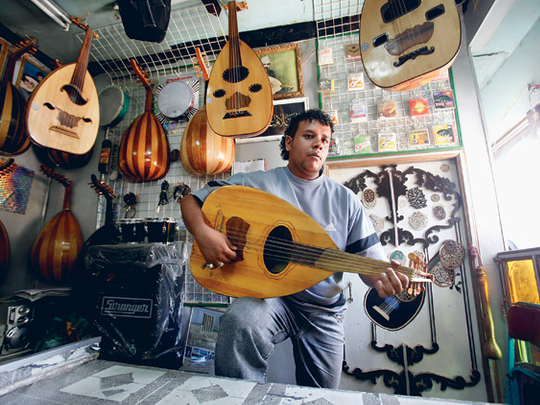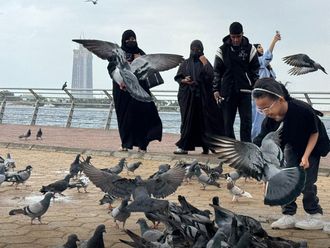
Sana'a: A famous Yemeni song about love at first sight goes, "With her eyes, she aimed her arrows carefully and hit my heart," a poetic tune that has doubtless served as a backdrop for many long Sana'a afternoons.
Holding a pear-shaped oud, an Arabic lute, the singer will sit among listeners who have gathered after lunch to while away the hours chewing the mild stimulant qat, a narcotic leaf that is both hugely popular and legal in impoverished Yemen.
The tune is one of a collection of traditional songs of the Yemeni capital that Unesco in 2003 declared a "Masterpiece of the Oral and Intangible Heritage of Humanity", said to be at risk of disappearing as younger generations turn to pop music.
‘Difficult to learn'
Yemen has since moved to record and preserve the city's musical heritage, and over 300 Sana'ani melodies and their words have been recorded, said Rafiq Al Akouri of the Yemeni Centre for Musical Heritage, which led the project.
"Sana'anis say the melodies are difficult, difficult to learn. But they are beautiful, especially the words", Al Akouri said.
Qat sessions are often the setting for Yemen's ancient tradition of sung poetry, dating back to the 14th century and which many fear may die out as few younger Yemenis want to master what is a demanding art.
Listeners at such sessions can make for a lively audience, singing along, clapping out complicated rhythms and heckling. But sometimes they may just sit and listen to the stories being told in the music.
Yemen, home to a deeply conservative Muslim society, has been slow in opening up to the rest of the world. Around 70 per cent of its 23 million population live in the countryside, much of which consists of impassable mountain ranges and desert.
Instability and corruption have prevented significant foreign investment outside Yemen's declining oil industry, and globalisation has had little visible impact in a country where more than 40 per cent of people live on less than $2 (Dh7) a day.
Cementing a truce
Yemen is trying to cement a truce to end a civil war with Shi'ite rebels in the north, quell separatism in the south and fight a resurgent regional Al Qaida arm that has made the country's impenetrable terrain a base.
But the growing number of satellite television channels and the internet also means Yemenis are increasingly exposed to foreign influences. Tastes have gradually become more diverse, with Western or more modern Arab music gaining in popularity.
Some traditional instruments have already died out.












